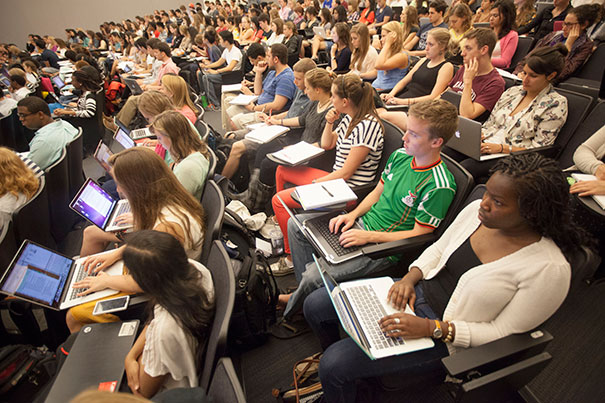EDUCATION: Community college is a viable option for students in many cases.
By Avelina Maier, Staff Writer
High school these days seems to be a cynical system of rigid competition and very high standards. Nowadays the mindset of students in high school is pretty much, “Harvard, Yale, Princeton or BUST!” when that really isn’t the case. For the longest time, there have been debates over whether or not community college is a good enough — if not a better — route to take in terms of undergraduate education. Although it may not be the most glorious of options, it is very much a feasible choice.
The most important factor: cost. At community college, the tuition and fees are extremely low. For example, Riverside City College (RCC) students pay an average of $3,079 a year. For students attending University of California, Riverside (UCR), there is a whopping average of $15,180 per year, according to their official website. No matter which college a student attends, the first two years will be mainly comprised of the same set of classes. For example, every freshman and sophomore has to take English 101, a biology class, and a college math class. Since these classes cover virtually the same material at every college, including local community or junior colleges, it is financially wise to complete these requisites at a junior college. “Going to a 4-year for General-Ed simply does not make economic sense to me. I do not understand spending $60,000+ for an impacted, undergraduate education when I can pay $5,000 for honors classes at RCC with a maximum of 20 students,” Itzel Crusoe (12) expressed.
To reduce the impact of a university price tag, many suggest applying for college scholarships to help offset the cost of high tuition. This is a great idea, but it is limited to students who have either earned consistently high grades or were all-star athletes in high school. Taking the community college route allows students to fix their transcripts. If students received poor grades in high school, achieving straight A’s in a community college can help them earn scholarships that were previously unavailable. Furthermore, if they aspire to attend a more prestigious private university but were not accepted out of high school, attending a community college may help. Not only are they given the second chance to achieve a stellar transcript, but they also have a better chance of acceptance as a junior rather than as a freshman, since there is less competition. Attending RCC’s Honors Program (to qualify students must have a 3.5 high school grade point average or higher) can boost their chances from 30% to 80% on attending a college of choice. “Due to programs like AVID (Advancement Via Individual Determination), that are bringing college awareness to the forefront, there are more students nowadays that are academically ready to enter a four-year university which makes it very competitive to get into the most prestigious universities,” Maria Galvan, Poly alum of 1990, RCC graduate 1992, and current educator at North High School, stated.
Another factor that makes community college more enticing is living closer to home. It means less traveling and lower living costs. When attending college, tuition is not the only cost students must take into account. They must also consider the extra expenses of gas, car maintenance, room, and board among other living expenditures. If one’s dream school is in another state, moving and finding an apartment to rent or paying for a dorm room is a significant expense. Mandatory parking passes are also much more expensive at a university than at a junior college. If students are just out of high school, they can easily carpool to a local community college and live with their parents. “RCC is convenient in so many different ways. I would always bash the fact that ‘losers’ in high school would go there for a last resort. It turns out that not only am I getting the same education, but I’ll graduate student-loan-free,” Poly alum and current RCC student Derrick Maldonado said.
Lastly, community college allows students to “test the waters.” According to Pennsylvania State University, 80% of students entering college admit that they are not certain of what they want to major in, even if they’ve initially declared a major. In addition, up to 50% of college students change their majors at least once before graduation, and some waver numerous times. Imagine paying a hefty price tag at a private university, only to realize that an initial major selection was not for you. That could be several thousands of dollars—and a lot of time—down the drain. Since a community college offers a wide range of courses, students can test out what they want to major in before attending the university of their dreams. Attending a community college for the first two years is especially beneficial for recent high school graduates because, “a lot of personal growth and maturation occurs the first few years after graduation,” according to author Jessica Bigger (writer of the article “Improving the Odds for Freshman Success”). Students should consider playing it smart and spending $3,000 a year to figure out what they want to do at a community college rather than $36,000 at a private university.
Studying general education requirements at community college has several advantages over doing so at a four-year university. Students will pay much less money to attend smaller, more flexible classes that provide the same quality of education. Students will miss out on some aspects of “the college experience” (such as having a beautiful campus, exploring a new city, etc.), but they will avoid a good chunk of student debt in the process. If students are dead set on attending a traditional university and have the financial means, it can be a rewarding experience that they will never forget. But if students just want to get a good education and save money, they should explore the several benefits of attending a community college.

